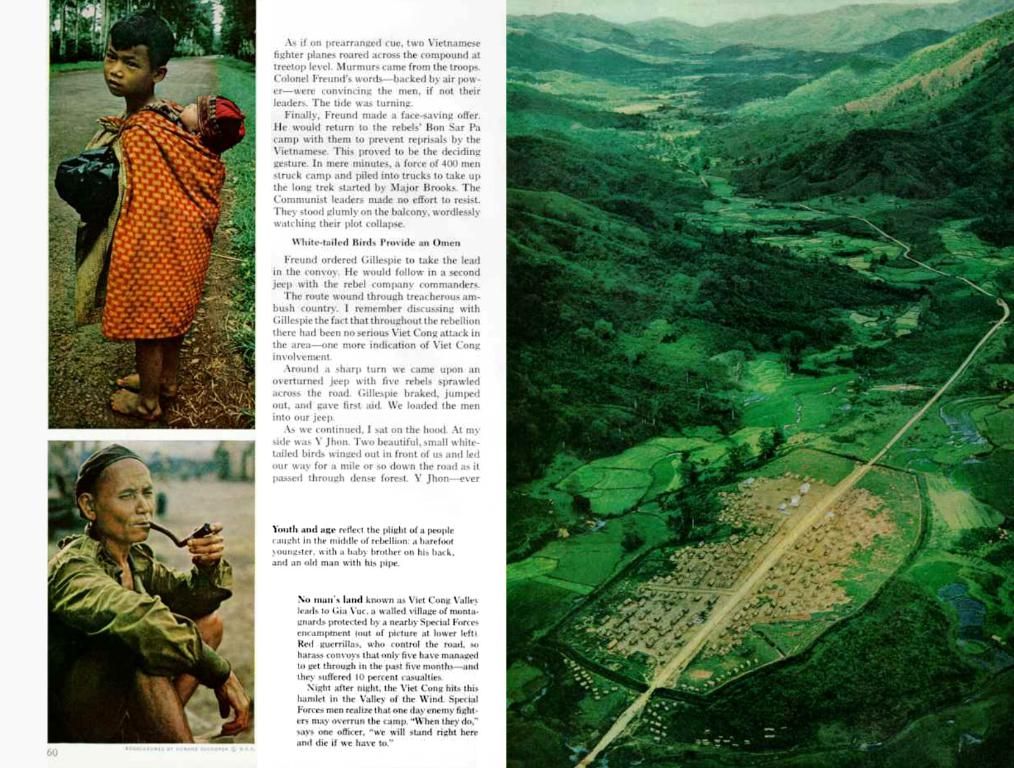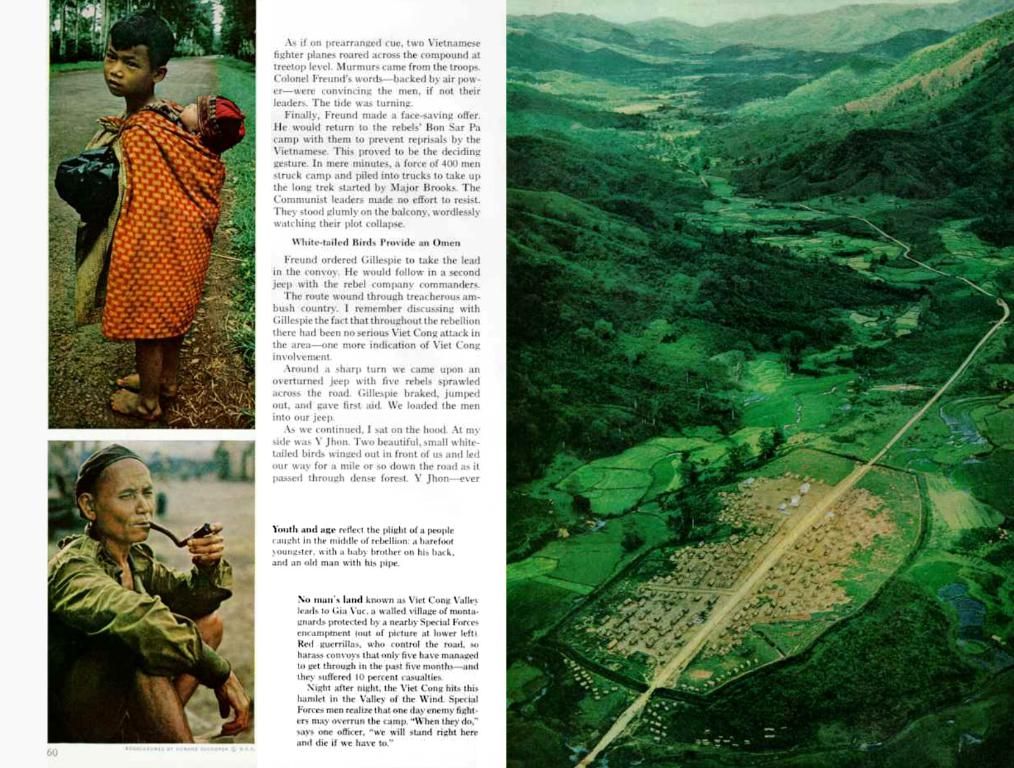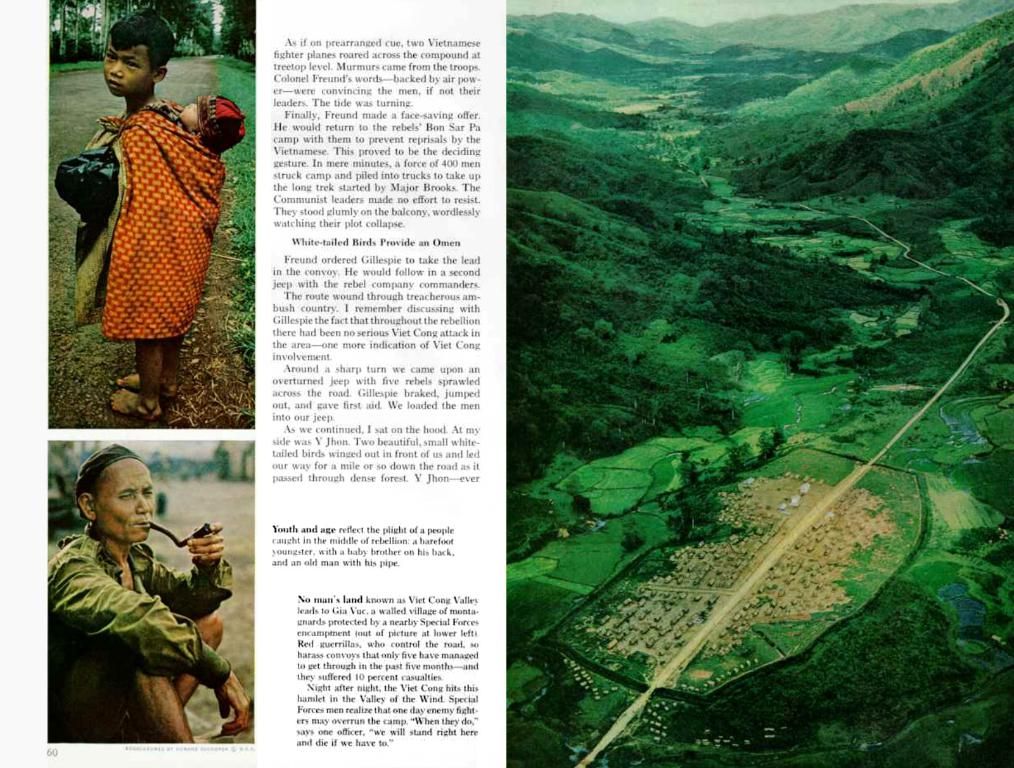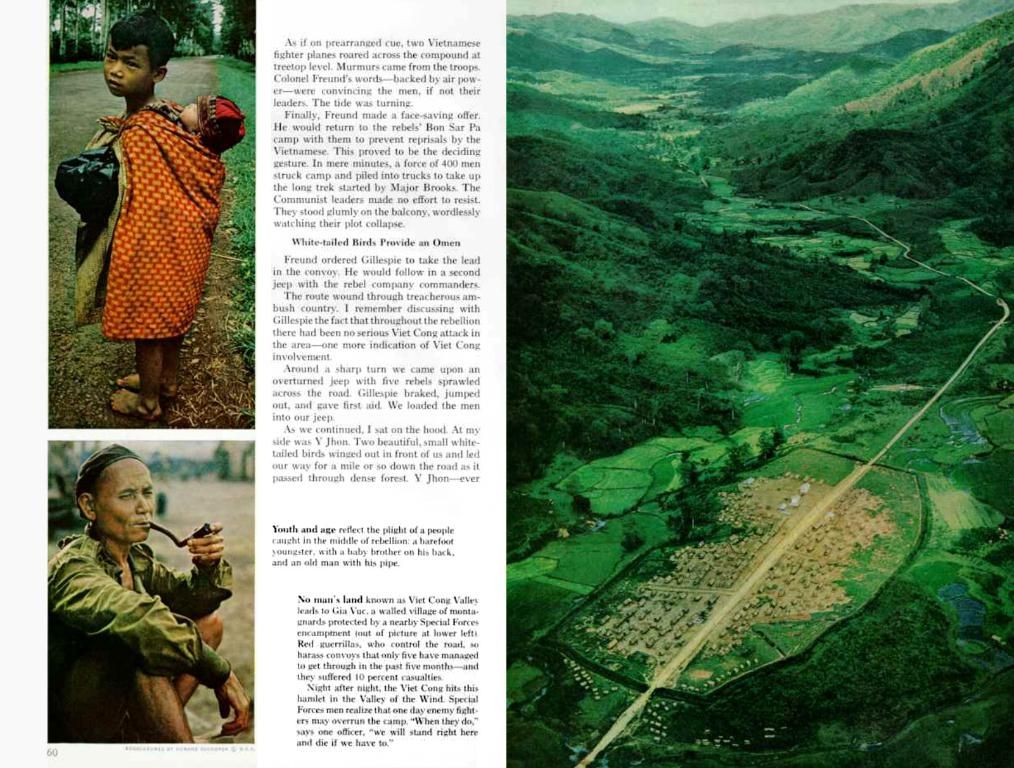Kazakhstan's Introducing the Neo Nomad Visa: A Strategic Move for Attracting Global Wanderers
It's high time Kazakhstan, the world's largest landlocked country, moves beyond just tourism promotion and taps into its liveability potential.
On November 1, 2024, Kazakhstan rolled out the Neo Nomad (B12-1) Visa, a strategic move to attract remote workers to its soil. To qualify, applicants must earn a steady monthly income of at least $3000, have medical insurance for the duration of their stay, and maintain a clean criminal record. It's a visa available to all eligible individuals, regardless of nationality, although citizens of 48 predominantly OECD and GCC states face less immigration-related scrutiny due to their minimal migratory risk. This visa process takes merely five days and can be extended for another year without leaving the country upon its validity period lapsing.
Since these newcomers have financial independence and do not qualify for local employment, Kazakhs' livelihoods remain unaffected. Moreover, the transient nature of the B12-1 visa means its holders typically opt for short-term rental accommodations, exerting little, if any, upward pressure on domestic housing prices.
Going beyond Kazakhstan's attractiveness as an immigrant-friendly nation, the country aims to maintain a robust, business-friendly environment akin to that of Dubai or Singapore. With the decline in living standards across the Euro-Atlantic space, the traditional G7 economies no longer hold the same magnetic pull they once did for relocation.
The Neo Nomad Visas have already been issued to nationals of the United States, United Kingdom, South Korea, and Singapore, among others, reflecting the growing trend of "reverse migration" – where individuals from highly developed and prosperous jurisdictions are on the move. If the current administration manages to handle immigration sensibly and merit-based, Kazakhstan could reap significant benefits from the developing multipolar world order.
An expedited pathway to permanent residency for skilled professionals via recently unveiled B9 and B9-1 Visas underscores Astana's commitment to overseas talent retention and societal enrichment. As a multi-cultural society where people of various beliefs, creeds, and ethnicities coexist harmoniously, Kazakhstan seeks to further cement its reputation as a beacon of tolerance by offering select foreigners a sense of belonging.
Disaffected Westerners settling in Kazakhstan in large numbers may even help mitigate the brain drain still plaguing the Eurasian powerhouse. In his 2023 State-of-the-Nation address, President Kassym-Jomart Tokayev emphasized the importance of empowering the indigenous workforce and strengthening the "health" of Kazakhstan. Astana's decision to introduce a Digital Nomad Visa scheme over the more lucrative yet controversial residence-by-investment (RBI) option signified an astute move by the Ministry of Tourism and Sports.
With the former drab, Soviet-style Almaty now morphing into "Central Asia's capital of cool" and the administrative capital Astana being well-connected to key European and Asian aviation hubs, Kazakhstan offers irresistible selling points such as geopolitical neutrality, diverse topography, rich heritage, unparalleled safety in its major metropolises, ongoing cultural renaissance, and participatory governance post-2022 constitutional reforms.
The Astana International Financial Center (AIFC), underpinned by English Common Law, has attracted expatriates from 'first-world democracies' with a background in banking. Meanwhile, Astana Hub dynamically ropes in tech entrepreneurs and innovators from abroad, while nurturing local start-ups. Kazakhstan's increasing appeal as an overland destination, coupled with conflicts in Eastern Europe and West Asia and simmering tensions in the Indo-Pacific region, is fueling the desire for "domicile diversification" among affluent individuals or families seeking refuge from turmoil while enjoying a high quality of life.
Given Kazakhstan's record-breaking 11.5 million international arrivals last year, authorities should leverage this tourism surge as a stepping stone to attract long-term residents, with the Neo Nomad Visas serving as their primary tool.
A CNN article attests to the turnaround experienced by Almaty and Astana, making them increasingly liveable and well-connected.
This piece is penned by Saahil Menon, an investment analyst.
Disclaimer: The opinions and views expressed in this article do not reflect The Astana Times' position.
Key Insights:
By analyzing data from the enrichment section, it's evident that the Neo Nomad Visa aims to attract internationally mobile professionals and digital entrepreneurs, provide a pathway to permanent residency for skilled professionals, and boost Kazakhstan's digital presence. Key areas where the benefits are tangible are economic diversification, increased foreign investment and talent, consumption and service stimulation, and potential long-term settlement of skilled professionals. Additionally, the visa may raise demand and investment opportunities in urban real estate, as demand for rental properties increases.[1][2][3]
- Jomart, the President of Kazakhstan, describes the Neo Nomad (B12-1) Visa as a strategic move to attract internationally mobile professionals and digital entrepreneurs, offering them a pathway to permanent residency.
- The risk of immigration is minimal for nationals of 48 predominantly OECD and GCC states when applying for the Neo Nomad Visa, due to their prosperous jurisdictions.
- Education and self-development opportunities could potentially be enriched in Kazakhstan, as disaffected Westerners settle in the country in large numbers, mitigating the brain drain still plaguing the Eurasian powerhouse.




